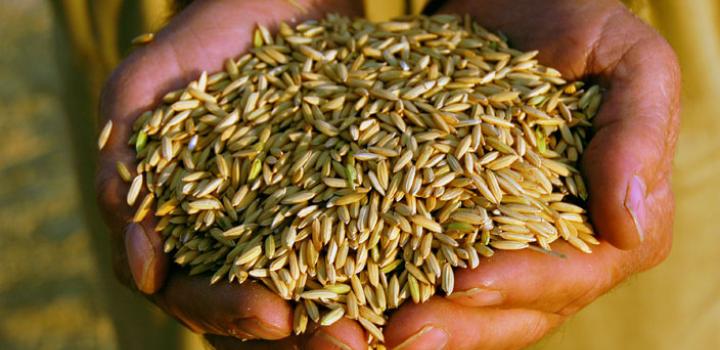U.S., South Korea reach rice trade deal
by November 19, 2019 4:00 pm 1,076 views

Rice produced in Arkansas and the rest of the country can soon be sold in South Korea. U.S. Trade Representative Robert Lighthizer and U.S. Secretary of Agriculture Sonny Perdue announced Tuesday (Nov. 19) an agreement with the government of South Korea on market access for U.S. rice.
Under the agreement, Korea will provide access for 132,304 tons of U.S. rice annually, with an annual value of approximately $110 million. Korea also agreed to important disciplines to ensure transparency and predictability around the tendering and auctioning for U.S. rice.
“Exports are critical for the economic health of the U.S. rice industry, with half our crop being exported every year. Agreements like this, that expand opportunities for U.S. rice producers in important markets, are critical to introduce foreign customers to the bounty of goods produced by America’s farmers,” Perdue said.
In 2014, the United States, Australia, China, Thailand, and Vietnam entered into negotiations with Korea when its special treatment for rice market access under the World Trade Organization (WTO) expired.
As a result of these negotiations, Korea agreed to include in its WTO Schedule a 408,700-ton tariff-rate quota for rice imports with a 5% in-quota duty and a 513% above-quota duty. Of that 408,700 tons, Korea will allocate 388,700 tons of rice to country-specific quotas under a Plurilateral Agreement with the United States, Australia, China, Thailand and Vietnam. The remaining 20,000 tons will be administered on a global basis, which U.S. suppliers can also bid for.
Additionally, the agreement provides U.S. suppliers with enhanced disciplines related to the administration of the U.S. country-specific quota. The agreement will enter into force on January 1, 2020.
Arkansas, which produces about half the nation’s rice, will benefit from this agreement Arkansas Rice Executive Director Lauren Waldrip told Talk Business & Politics. During the last decade, the state has averaged about 1.35 million rice acres each year, according to USDA.
“After nearly five years of working towards a new agreement, we are pleased to see this deal finalized. The industry will certainly benefit from this arrangement, which increases consumption of U.S. rice and guarantees this market through the U.S. country-specific quota. We are encouraged and hopeful that the administration will complete other agreements such as these in the future,” Waldrip said.
Individual companies involved in rice production and distribution were also pleased that an agreement had been reached with South Korea, one of the top rice consuming countries in Asia.
“After nearly five years of work, the rice industry and the U.S. government have finalized an agreement with Korea for a country-specific quota for U.S. rice,” said Kevin McGilton, Vice President Government Affairs for Stuttgart-based Riceland Foods. “We thank Ambassador Lighthizer and Secretary Perdue for their hard work to finalize the deal. U.S. agriculture is dealing with very uncertain times and this country-specific quota brings certainty in a high-value market for U.S. rice farmers and exporters.”
